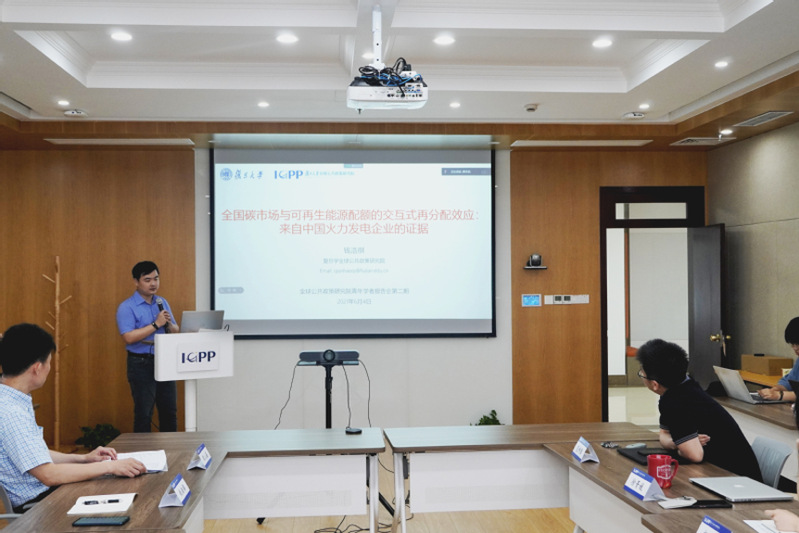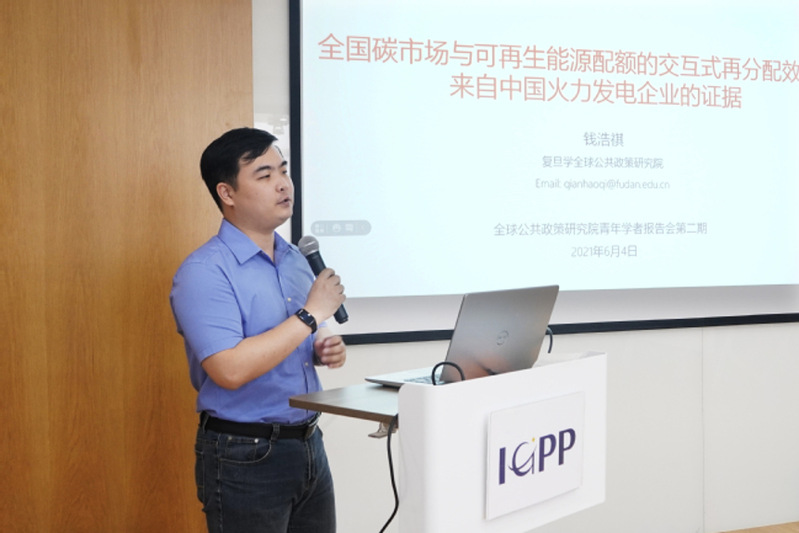Events



On 4th June 2021, the Institute for Global Public Policy (IGPP) held the fourth seminar of Young Scholars Report Series in Room 805E, West Sub-building of Guanghua Towers. Assistant Professor Haoqi Qian delivered the lecture “Interacted Regional Distributional Effects of China's National ETS and Renewable Portfolio Standard”. Professor Yijia Jing, dean of IGPP, chaired the lecture.

First of all, Dr. Qian introduced the background and research question. This study attempts to answer three questions. Firstly, what is the pattern of distributional effect among power plants. Secondly, what is the pattern of distributional effect among different provinces. Thirdly, what are the mitigation and distributional effect resulted from the interaction of carbon market and renewable portfolio standard. Dr. Qian pointed out that although there exists quite a lot of studies that focus on the distributional effect from theoretical perspective and national level, few studies focus on the micro-level mechanism of the market interaction.

Then, Dr. Qian introduced the institutional background of China’s emissions trading scheme (ETS) and renewable portfolio standard. He used a mathematical model to deduce the distributional effect caused by the interaction of two markets. A nationwide plant-level dataset is constructed to simulate the distributional effect. Results show that the national ETS has adopted a lax permit allocation standard so that most thermal power plants will have allowance surplus. The carbon permit market will be cleared when the allowance standard is as strict as 82% of the current level. If the renewable portfolio standard is introduced and interacts with the national ETS, the mitigation costs of western and central provinces will be alleviated by selling green certificates, while eastern provinces will bear the dual cost pressures.
At the end of the lecture, Dr. Qian concluded the study and discussed various topics with the audience.
